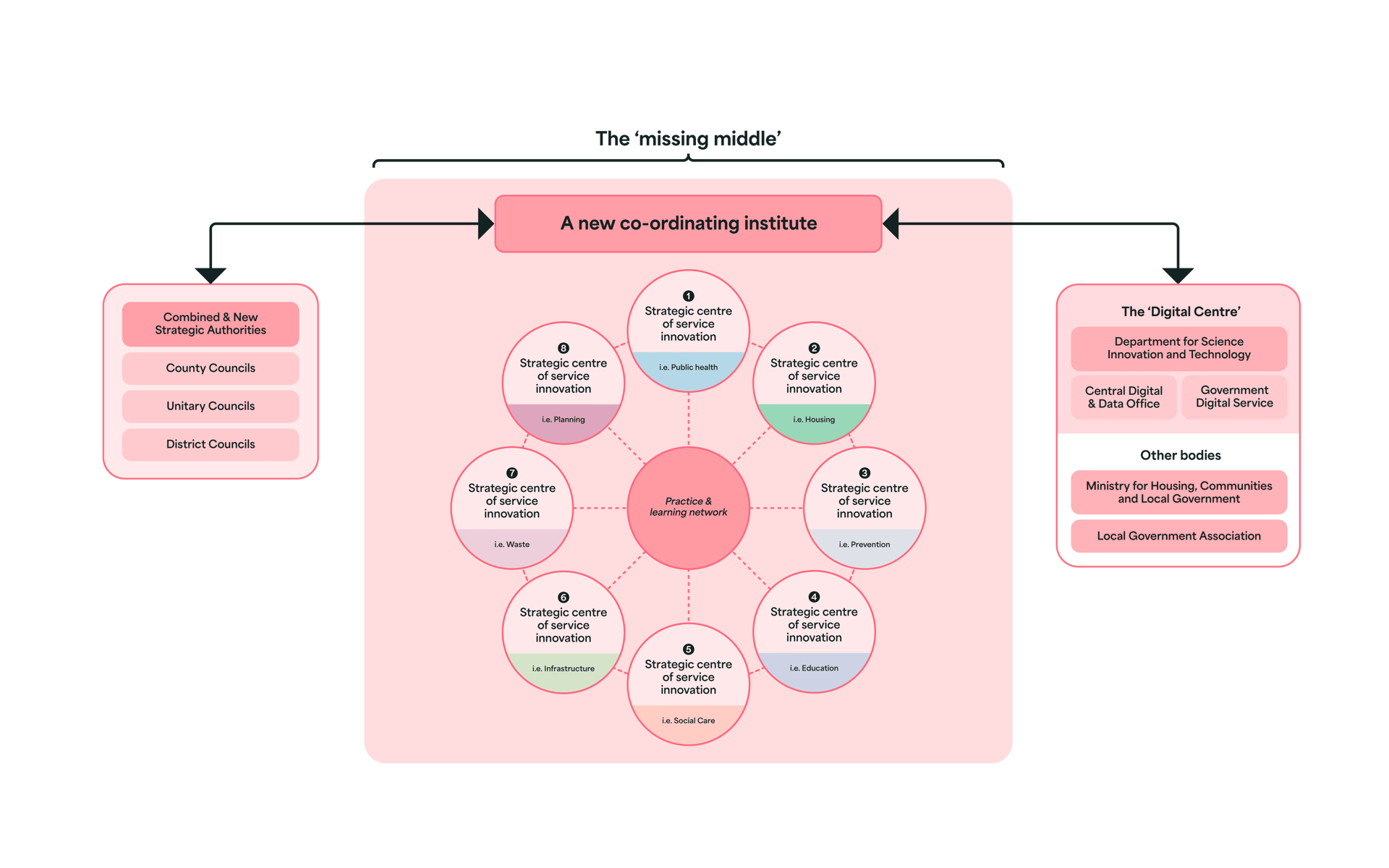
The second in The Future Governance Forum’s Impactful Devolution series, Local government for the digital era is the product of a collaboration between FGF and Public Digital with the support of Amazon Web Services.
This project is the first of its kind. Over the past eight months, we have gathered insights from over 50 doers and thinkers from across local government and the digital ecosystem, mapping out the key challenges and opportunities of local digital transformation in a way that has never been done before.
Plans are in motion within the ‘digital centre’ of government to reshape the way central government works and delivers public services, reflecting a recognition of the power of data, digital, and emerging technologies to drive efficiencies and deliver modern, user-centred public services.
But missing from the government’s plans is a vision for the future of ‘digital’ in local government, and how the two can coordinate efforts as the government looks to advance its missions and push more powers to the local and regional level.
The local digital landscape today is fragmented and lacks a strong institutional foundation. While there are pockets of good practice, little coordination exists between central and local government, creating unnecessary duplication and missing opportunities to share learning and address common problems.
We call this gap the ‘missing middle’ – and without addressing it, digital transformation efforts in local government will remain piecemeal, failing to keep pace with demand and further widening the gulf in service quality with central government.
This project explores what an effective local digital ecosystem – bridging local and central government – could look like. We recommend creating a new digital architecture that supports devolution, fuels place-based innovation, and enables sector-wide collaboration and reform.

Through this work we heard a clear story about a series of well-understood and long standing challenges – the ‘what is’. Reflecting on that insight, we set out the ‘what if’ – what the future could look like for ‘digital in local government if we could change the way we work.
Develop a sector-wide workforce plan (for local government) that addresses digital skills and systemic issues around diversity and representation; as well as creating clear routes to bring in new talent into the sector – including national digital apprenticeship schemes
Create structured pathways for digital practitioners to progress into key leadership roles that traditionally aren’t held by those with digital backgrounds (i.e. chief executives)
Create the infrastructure, incentives and aircover for councils to de risk innovation and shape the software market via collective buying, sandboxing and shared procurement frameworks across appropriate footprints
Bring together multi-disciplinary teams to develop appropriate digital service standards and incentivise (rather than penalise) their adoption
Make data sharing and exchange a default rather than the exception by providing coordinated training, support and guidance to address both the technical and cultural issues that prevent information sharing
Throughout this project, we’ve sought to work in the open – speaking publicly about the work from the outset, sharing our progress as we go, and inviting as many people as possible to take part. In that spirit, and true to our ethos as a forum for ideas and dialogue, we want to hear from you.
We invite you to share your thoughts and questions here. Our hope is to spark meaningful discussion across local government and across the sector, keeping the conversation alive long after this work is published.